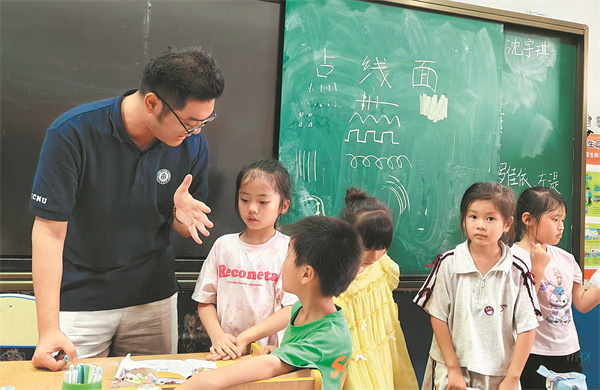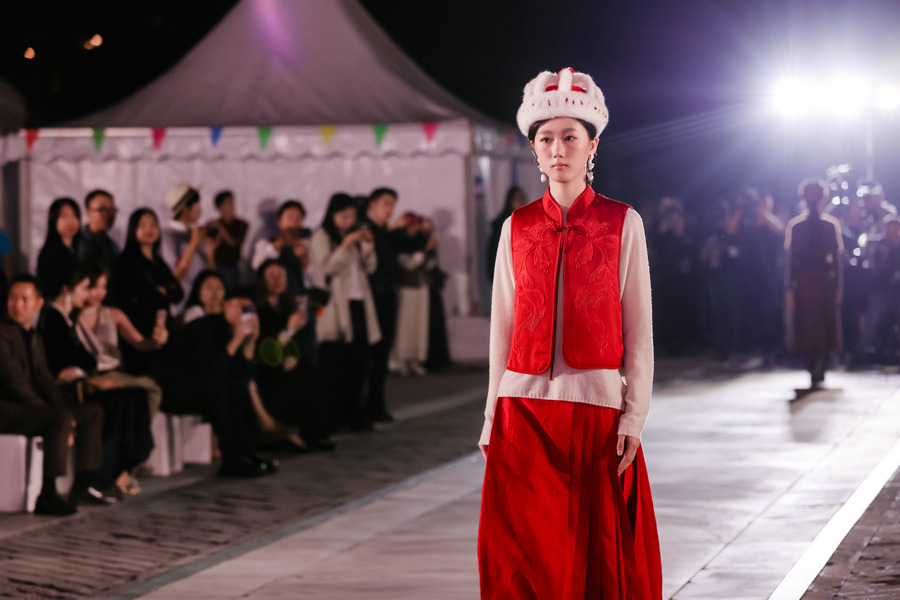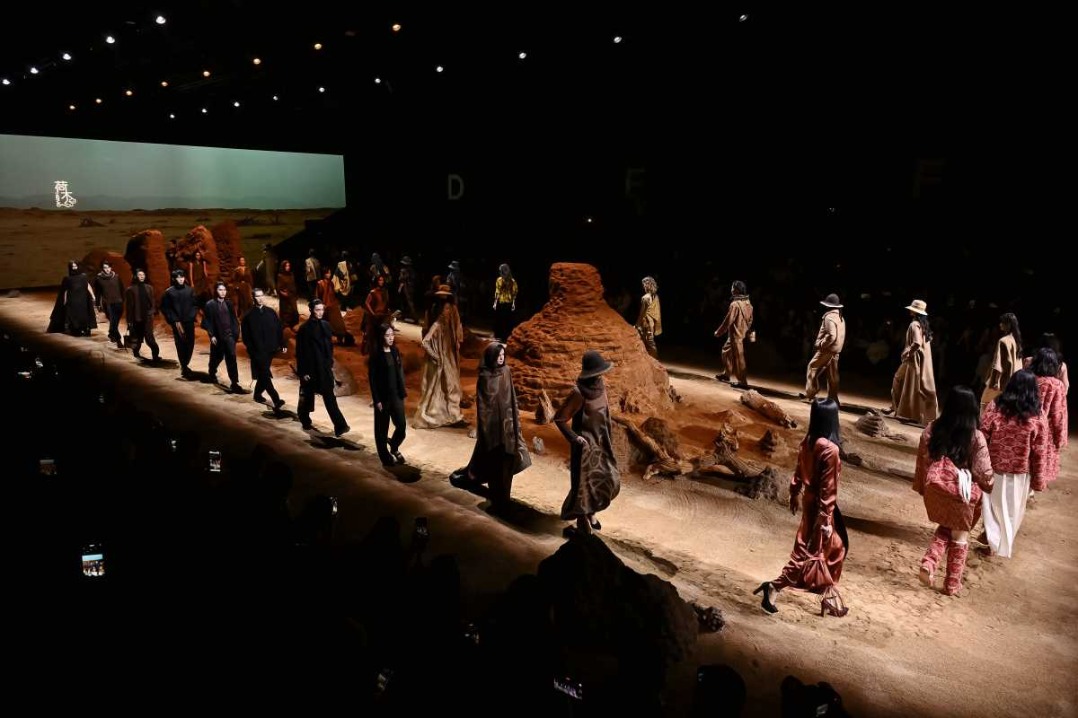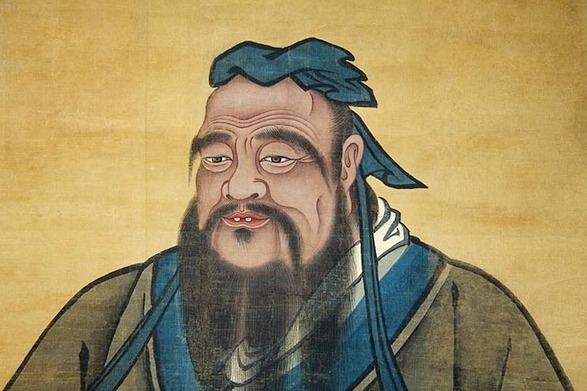Volunteer educators reshape a rural school's future


He noted that the team developed a variety of teaching methods to keep the students engaged. In addition to traditional classroom approaches, they integrated music, sports, dance, painting, and even melodrama into the curriculum.
A special highlight this year was a course on artificial intelligence, where students learned how to interact with AI tools by writing stories and generating illustrations.
"Two weeks is a short time, but what we hope to give students through the camp is an opportunity to broaden their horizons, better understand themselves and others, and begin shaping their values," Fan said.
This year's camp welcomed students from first to sixth grade, divided into two classes. For the young volunteer teachers, adapting lessons to suit all levels was no small task.
"We adjusted the difficulty and content of each class based on our observations and interactions with the students," Fan explained. "Compared to those in cities, students in rural schools often face more complex challenges, such as loneliness, interpersonal conflicts, and family issues."
This made communication outside the classroom an essential part of the volunteers' work. Through heartfelt conversations, companionship, and interactive activities, Fan's team made great efforts to comfort the children, ease their anxiety, and help build a caring, supportive community.
Zhou Shiqi, 23, a soon-to-be graduate student majoring in special education at ECNU, was one of the volunteer teachers this summer. She said she was glad to see the students' curiosity and excitement about the new AI course, as well as their growing self-awareness and emotional resilience.
"The students might not yet have a clear plan for their future," Zhou said. "But I believe it's important for them to gain a new perspective on life, discover their strengths, and be inspired to see a different side of themselves."




































